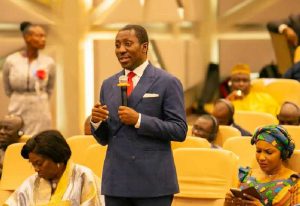Mr Jonas Claes, Deputy Head of Mission, European Union (EU) in Ghana, says culture must serve as catalyst for social inclusion, employment, and development.
He said culture’s unique ability to bridge divides, foster understanding, and promote unity among diverse groups of people must always be upheld.
Mr Claes, speaking at the launch of the Seventh edition of ‘Pa Gya! A Literary Festival in Accra’ said, “We firmly believe that culture should be accessible to all.”
This year’s literary festival, being organised by the Writers Project of Ghana, Goethe-Institut Ghana, and the Foundation for Contemporary Art- Ghana, will come off in Accra from 13th October to 15th October 2023.
The three-day festival will feature more than one hundred writers, academics, publishers, artists, and others in the writing industry, with guests from Nigeria, Cameroon, Togo, the United States, the Netherlands, the United Kingdom, Singapore, Ukraine, South Africa, Zimbabwe, Uganda, Kenya, Curaçao, Cote d’Ivoire, and Iceland joining their Ghanaian counterparts from across the country.
It will have over 60 separate events, including book readings and launches, panel discussions, talks and presentations, theatre vignettes, poetry performances, film screenings, writing workshops, and special sessions for children.
“Pa Gya! A Literary Festival in Accra” is sponsored by the Goethe-Institut Ghana with support from the European Union Delegation to Ghana, the Embassy of the Netherlands in Ghana, and the British Council.
The Deputy Head of Mission, European Union in Ghana, said, “Culture is not a luxury product, or merely a source of entertainment. Creative industries, including in literary space, also have great potential for job creation – especially among youth. Stimulating reading and writing enhances access to education and employment.”
He said festivals like Pa Gya helped to create opportunities for employment and entrepreneurship, and that “they have the power to amplify voices, and nurture talent.”
Books, he noted, were doors to learning and understanding, and that literature introduced the reader to diverse cultures and helped to create bridges between communities, countries, and continents.
Mr Claes said the European Union took its support to culture seriously and that the EU had prepared its own Cultural Engagement Strategy and Action Plan to support African literature and wider arts and culture.

He added that “with our support to this Festival, we also encourage connections across communities, cultures, and languages.”
By supporting the festival, he reiterated that the EU would continue to encourage cross-cultural discussion beyond national and linguistic borders by promoting Ghanaian and African literature in Europe and African and European literature here in Ghana.
Mr Martin Egblewogbe, Director, Writers Project of Ghana, said over the years, the festival had collaborated with writers, publishing houses, artists, cultural institutions and others and had provided opportunities for emerging writers, illustrators, editors and artists with a great networking and collaborative platform for visiting partners.
He said since its inception in 2017, the Pa Gya Literary Festival continued to foster interesting relationships and networks on the literary scene and continued to grow the literary community in Accra.
“I am especially honoured to welcome the guests to this year’s festival, but I most of all am looking forward to active participation of literature and art lovers from all over Accra and Ghana,” he said.
Ms. Baaba Boham Ainsoh, Administrative, Public Diplomacy and Press Officer, Netherlands Embassy in Ghana, said the Pa Gya festival had increased the visibility and interaction of Ghanaian writers, readers and literary art enthusiasts in Africa.
She said it offered a great platform for inclusion, international partnerships, and exchanges, which contributed to the shared prosperity of Ghana and the rest of the world.

By supporting Pa Gya, Ms Boham Ainsoh, said the Embassy of the Netherlands highlighted the strong and dynamic cultural relationship between Ghana and the Netherlands through literature by connecting Ghanaian writers and artists to Dutch artists and the rest of the world.
She said, “Most importantly, our embassy shows its commitment to supporting initiatives such as Pa Gya, which highlights the significant role culture plays in contributing to the economic prosperity of Ghana through job creation and young entrepreneurship in the literary and publishing industry.”
Ms Elizabeth Johnson, Pa Gya Literary Festival Manager, said over the last seven years, the festival had made some strides, engaging with writers and producers in the literary scene.
She said there was more to achieve in terms of opportunities and platforms to new voices that were coming up, adding that the festival was one of the most anticipated literary festivals in Ghana.
ASAHNTIBIZ




